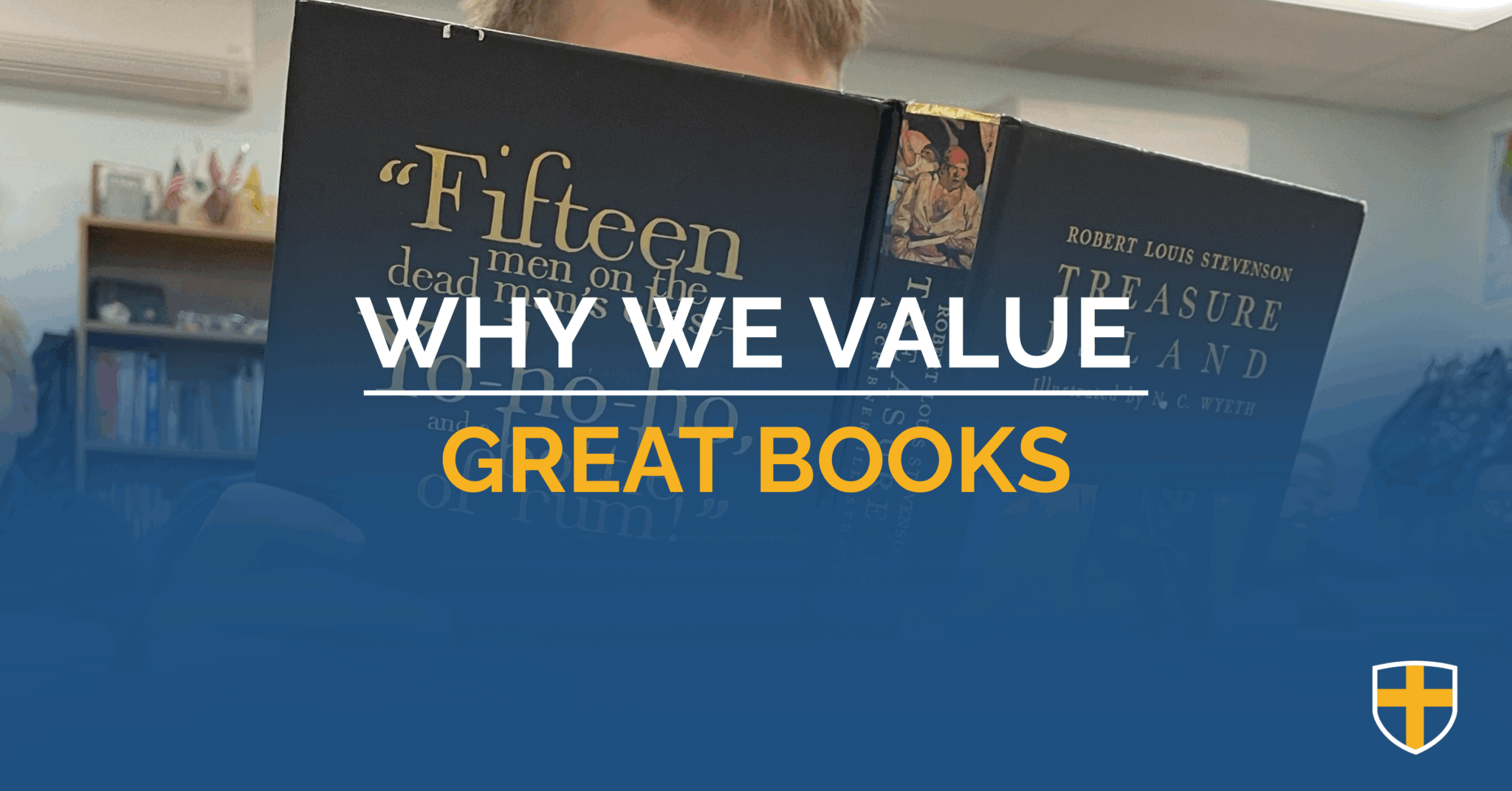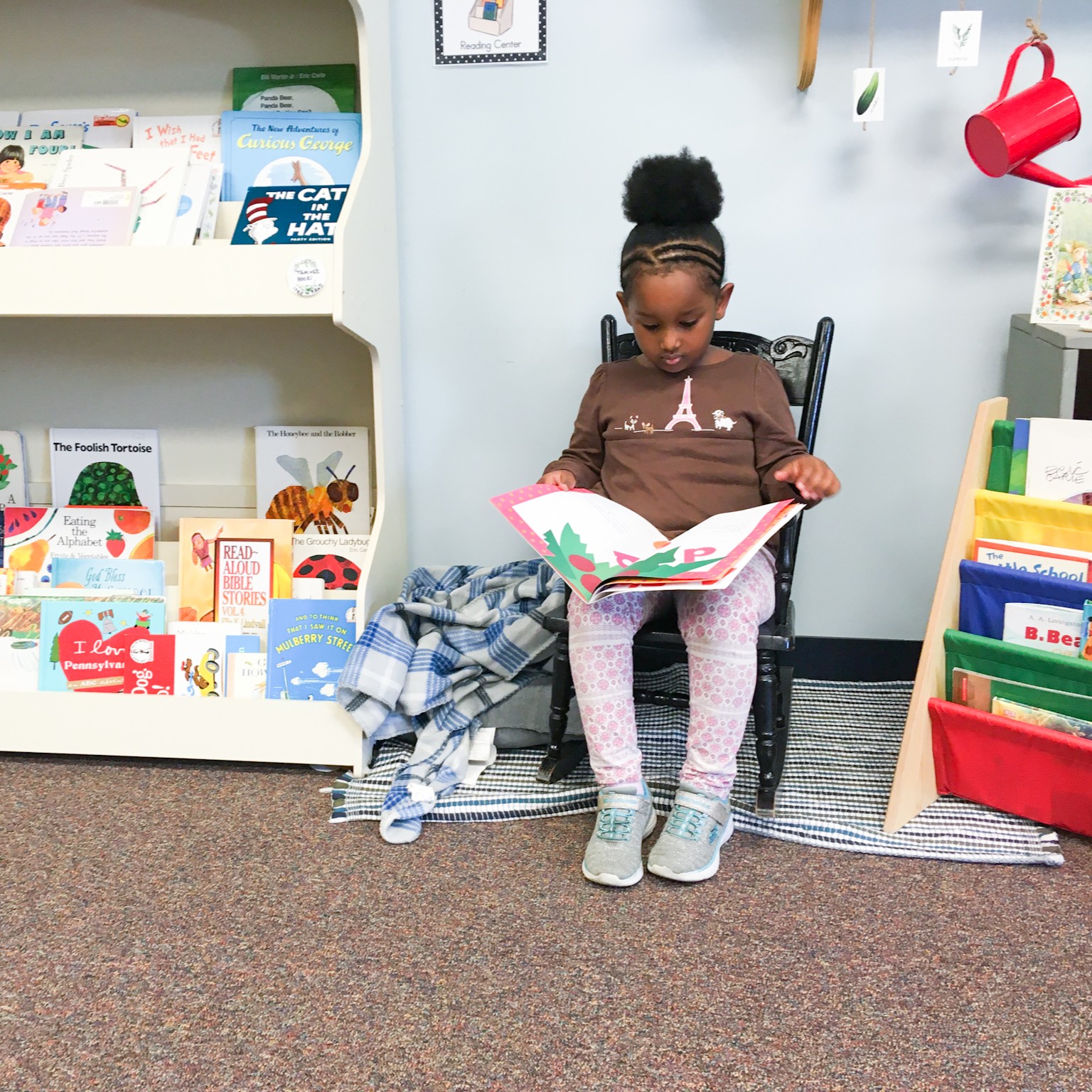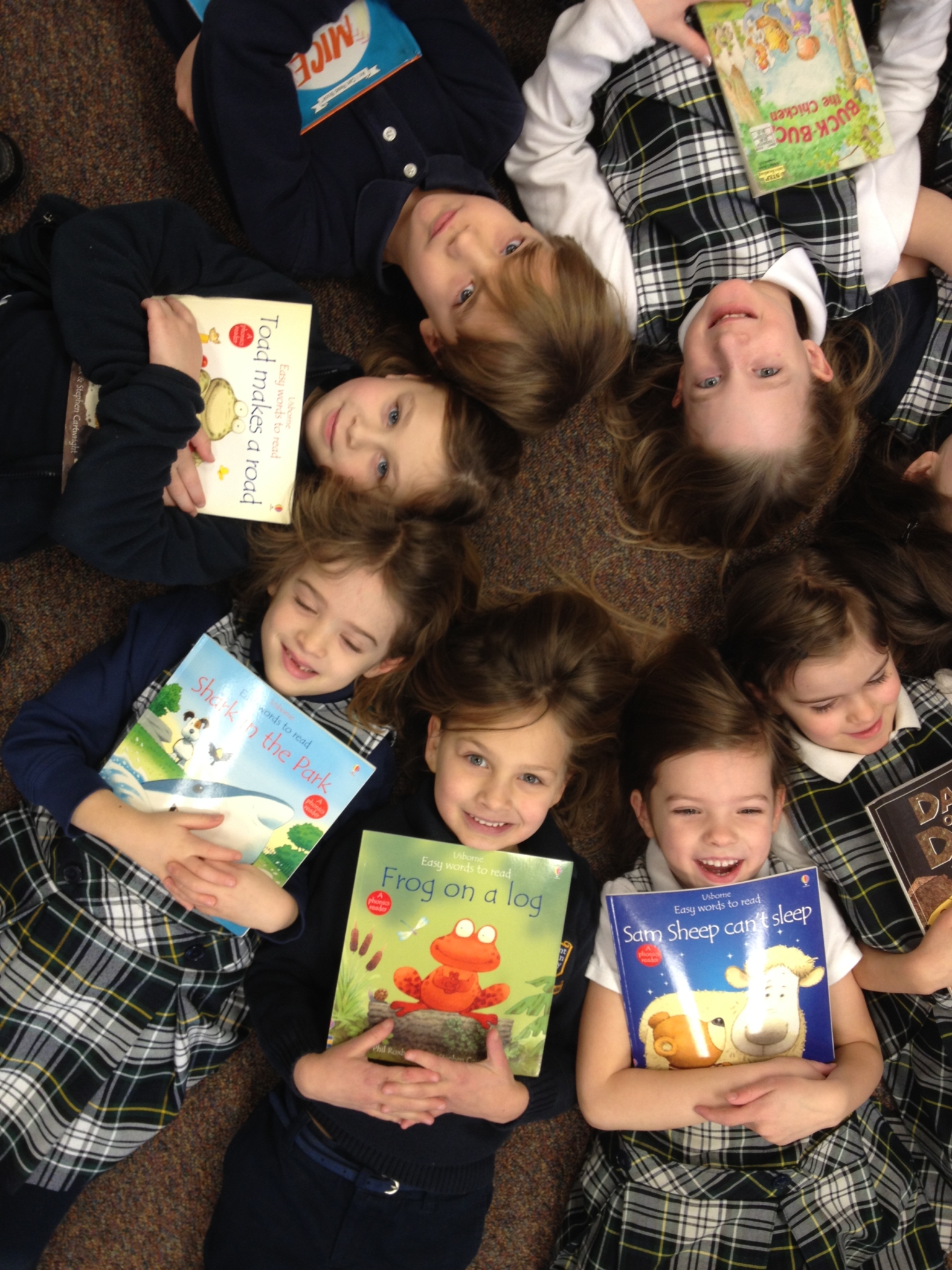Covenant believes in the impact of reading the great books—those timeless classics that have shaped the conversation about beauty, goodness, and truth for centuries. From Aesop’s Fables to The Hobbit, our students engage with works that challenge their perspectives and deepen their understanding of the world. By reading these foundational works, they’re not just learning literature—they’re building a foundation of wisdom that will guide them throughout life.
When it comes to teaching children how to read, we could talk about the research and the statistics of the “structure of literacy” method Covenant uses and how it works. We could talk about cursive and phonics and how literacy forms connections in the neuron pathways of the brain. And certainly, there is a time to research and think deeply about what methods work well and the long-term effects of the way we shape young minds with language. But instead, I want to talk about the first grader reading aloud to her stuffed animals. I want to show you the boy shouting words from road signs that he can read from his booster seat. I want you to hear how, in the springtime, the refrains of the hymns in grammar school morning assembly start to erupt with the excited voices of kindergartners who can finally read the lyrics on the screen. Really, I want to show you kids who love to read.
No matter which school you send your five-year-old to, it is very likely that you will end up with an eight-year-old who can read. And surely not every Covenant student turns into an English major. But, like every endeavor at Covenant, learning to read is a labor of love. Students learn to recognize the sounds and shape of language itself and watch with rapture as what were once meaningless lines and dots open up into worlds of ideas and understanding. But we want students to learn to love language because they worship the Word made flesh. The Creator of the universe did not think the world into existence; he spoke it. Our God with us chose to reveal himself through a book full of history and poetry and law. Surely, the way ideas are transformed into language is not just a means of communication but a reflection of the incarnation. We tell our students, “We learn to read so we can read the words of God.” But we also read because we love the Word of God, the Logos born as a man.





